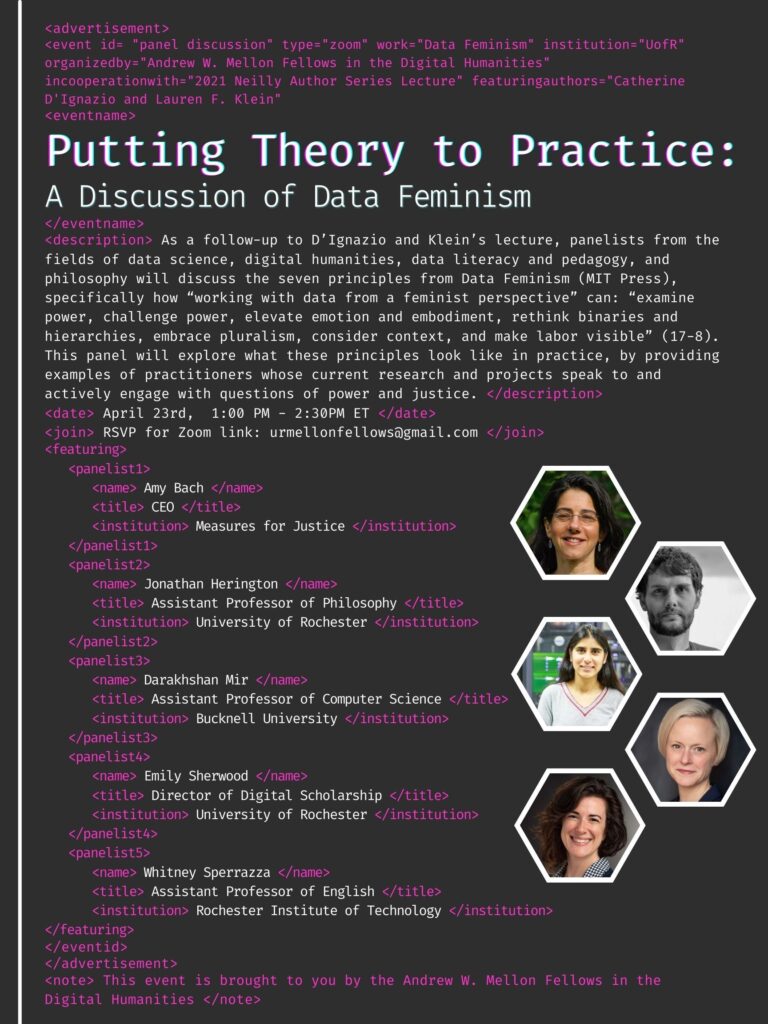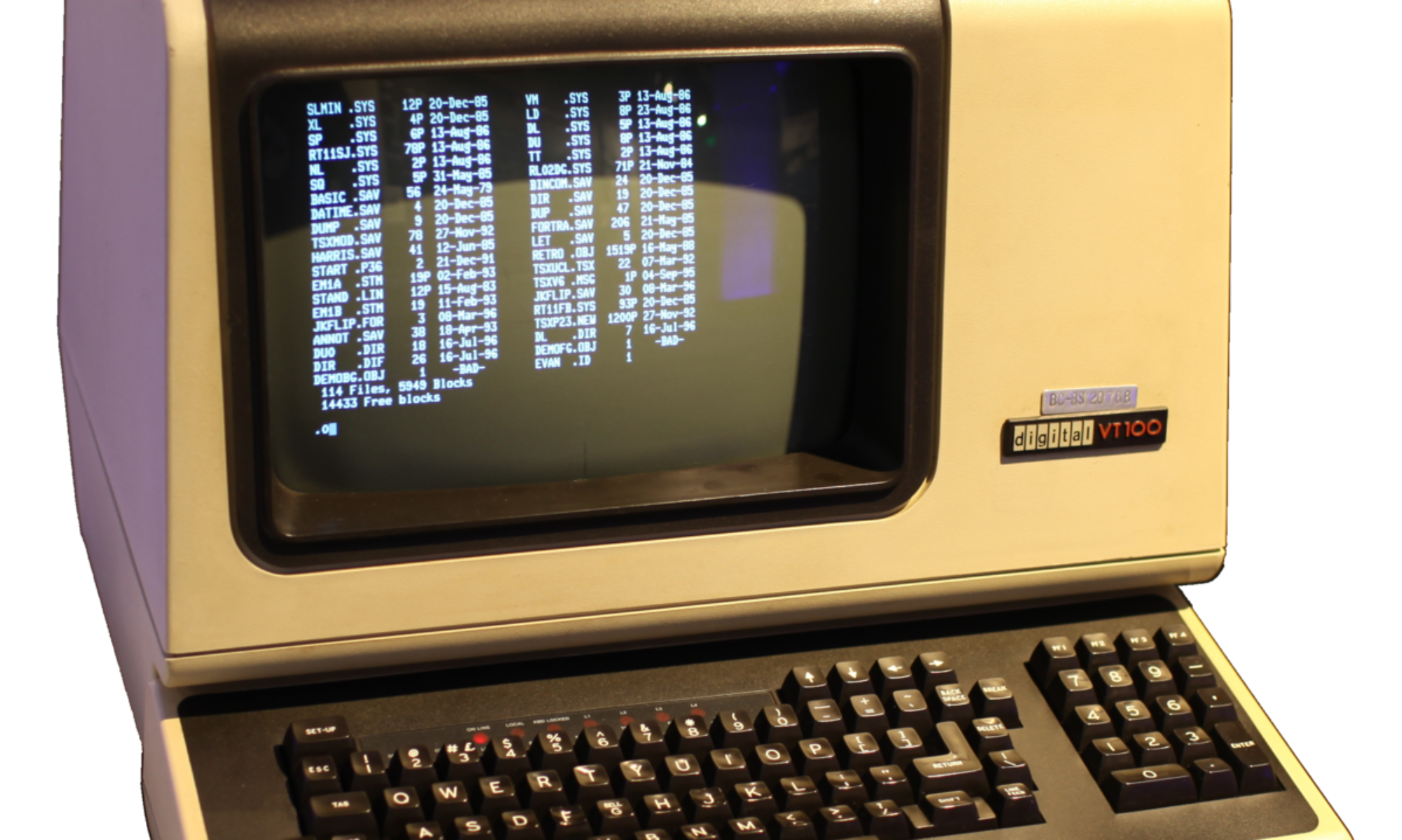
In coordination with the 2021 Neilly Author Series lecture with Catherine D’Ignazio & Lauren F. Klein, the Mellon Digital Humanities Fellows are hosting a discussion panel, Putting Theory to Practice: A Discussion of Data Feminism, on April 23, from 1:00 – 2:30 PM EST via Zoom.
Register for the Zoom link here
As a follow-up to D’Ignazio and Klein’s lecture, panelists from the fields of data science, digital humanities, data literacy and pedagogy, and philosophy will discuss the seven principles from Data Feminism (MIT Press), specifically how “working with data from a feminist perspective” can: “examine power, challenge power, elevate emotion and embodiment, rethink binaries and hierarchies, embrace pluralism, consider context, and make labor visible” (17-8). This panel will explore what these principles look like in practice by providing examples of practitioners whose current research and projects speak to and actively engage with questions of power and justice. Panelists will introduce their own work with data science, participate in a moderated discussion, and end with a Q&A. We are excited to be joined by the following panelists:
- Amy Bach, CEO, Measures for Justice
- Jonathan Herington, University of Rochester, Department of Philosophy
- Darakhshan Mir, Bucknell University, Department of Computer Science
- Emily Sherwood, University of Rochester, Director of Digital Scholarship
- Whitney Sperrazza, Rochester Institute of Technology, Department of English

